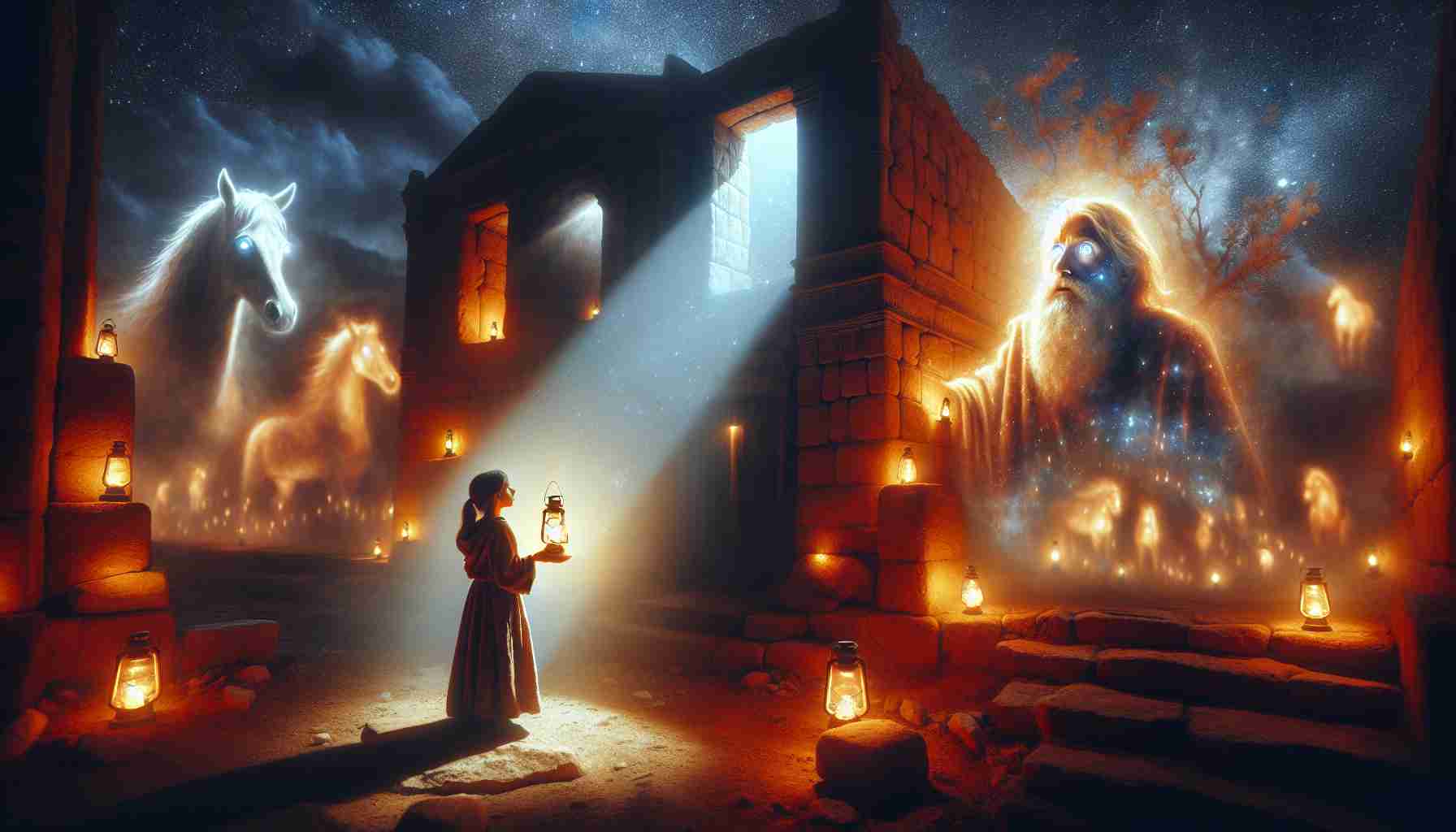

A cool wind rustled through the half-built walls of Jerusalem, carrying the scent of dry earth and distant fires. I still remember that night clearly—not because of what I saw, but because of who saw it. My name’s Abner, a mason by trade. In those days, we were trying to rebuild the ruins of our city, stone by stone. The Babylonian exile had left us without our homes, our pride, and most of all, our Temple—the place where we once met G-d.
Work was slow. Resources were few. But the hardest part wasn't labor—it was the despair. Every time my chisel struck stone, I wondered if any of it mattered. Did G-d still remember us?
One night, as we gathered near the fire to eat a meager supper, Zechariah passed through our camp. He was quiet, often lost in thought, but kind when he spoke. That evening, he sat beside us and told us what he saw.
He said the vision came after nightfall—messengers of G-d, horses of various colors, standing among myrtle trees in a valley. Behind the quiet words, something stirred in him. There was urgency. Hope.
“The angel of the Lord stood there,” Zechariah said softly, staring at the flames. “And he asked, ‘How long, O Lord of hosts, will You not have mercy on Jerusalem and the cities of Judah?’”
We were silent. Someone poked at the fire. My thoughts went to my sons asleep in the tent, growing up surrounded by rubble.
Zechariah’s eyes burned, not with tears, but conviction. “Then G-d spoke comfort. He said, ‘I am very jealous for Jerusalem and for Zion. I will return with mercy. My house shall be rebuilt.’”
I didn’t say anything then. I couldn’t. But for the first time in years, something cracked open inside me. Not like stone under my hammer—but like a door that had been sealed tight with fear.
You see, I thought G-d had abandoned us. That He left when Babylon came and the Temple fell. But if Zechariah’s vision was true—truly from G-d—then that meant He still watched over us. He hadn’t forgotten. He was waiting for us to listen.
Later that week, Zechariah came again. He watched us lift stones, raise scaffolding, carry timber. And when our shoulders sagged, he repeated what the angel told him: “G-d says, ‘My cities will again overflow with prosperity, and the Lord will comfort Zion again.’”
Those words became our strength. I carved them into the base of a pillar once—small, where maybe only another builder would see—but it was my way of saying: I still believe.
Years have passed since that night. The walls are taller now, the Temple’s foundation strong. But it wasn’t stone that began the rebuilding. It was hope, kindled in a night vision, carried on a prophet's voice.
And for a mason with tired hands and a worn heart, that made all the difference.
A cool wind rustled through the half-built walls of Jerusalem, carrying the scent of dry earth and distant fires. I still remember that night clearly—not because of what I saw, but because of who saw it. My name’s Abner, a mason by trade. In those days, we were trying to rebuild the ruins of our city, stone by stone. The Babylonian exile had left us without our homes, our pride, and most of all, our Temple—the place where we once met G-d.
Work was slow. Resources were few. But the hardest part wasn't labor—it was the despair. Every time my chisel struck stone, I wondered if any of it mattered. Did G-d still remember us?
One night, as we gathered near the fire to eat a meager supper, Zechariah passed through our camp. He was quiet, often lost in thought, but kind when he spoke. That evening, he sat beside us and told us what he saw.
He said the vision came after nightfall—messengers of G-d, horses of various colors, standing among myrtle trees in a valley. Behind the quiet words, something stirred in him. There was urgency. Hope.
“The angel of the Lord stood there,” Zechariah said softly, staring at the flames. “And he asked, ‘How long, O Lord of hosts, will You not have mercy on Jerusalem and the cities of Judah?’”
We were silent. Someone poked at the fire. My thoughts went to my sons asleep in the tent, growing up surrounded by rubble.
Zechariah’s eyes burned, not with tears, but conviction. “Then G-d spoke comfort. He said, ‘I am very jealous for Jerusalem and for Zion. I will return with mercy. My house shall be rebuilt.’”
I didn’t say anything then. I couldn’t. But for the first time in years, something cracked open inside me. Not like stone under my hammer—but like a door that had been sealed tight with fear.
You see, I thought G-d had abandoned us. That He left when Babylon came and the Temple fell. But if Zechariah’s vision was true—truly from G-d—then that meant He still watched over us. He hadn’t forgotten. He was waiting for us to listen.
Later that week, Zechariah came again. He watched us lift stones, raise scaffolding, carry timber. And when our shoulders sagged, he repeated what the angel told him: “G-d says, ‘My cities will again overflow with prosperity, and the Lord will comfort Zion again.’”
Those words became our strength. I carved them into the base of a pillar once—small, where maybe only another builder would see—but it was my way of saying: I still believe.
Years have passed since that night. The walls are taller now, the Temple’s foundation strong. But it wasn’t stone that began the rebuilding. It was hope, kindled in a night vision, carried on a prophet's voice.
And for a mason with tired hands and a worn heart, that made all the difference.